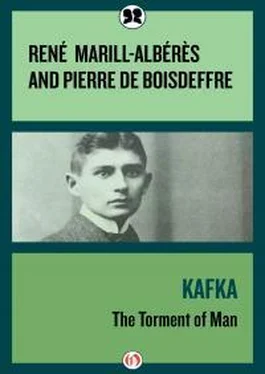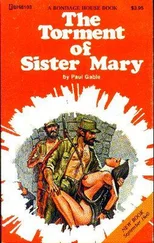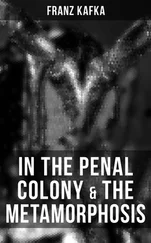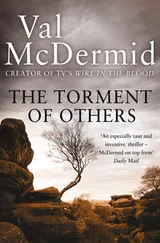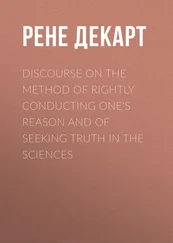Tauber, Herbert, Franz Kafka; An Interpretation of His Works , trans. by G. Humphreys Roberts and Roger Senhouse. New Haven: Yale University Press, 1948.
ENGLISH TRANSLATIONS (SELECTED LIST)
In addition to longer works such as The Trial , Kafka wrote more than a half hundred shorter works. Most of these were published by the author in collections which took their titles from the first story. Translations into English were rarely based on his formula, with the result that chronology has rarely been respected. The titles below are grouped according to the order in which the works were completed or, if the details are not known, in the order of their publication.
1906
“Description of a Struggle,” in Description of a Struggle , trans. by Tania and James Stern. New York: Schocken Books, Inc., 1958. Also contains “Blumfeld, an Elderly Bachelor,” “The Warden of the Tomb,” “The Refusal,” and “Short Pieces” (“Poseidon,” “The Vulture,” “The Departure,” “Give it Up!,” “At Night,” “The Helmsman,” “The Top,” “The Test,” “Advocates,” “Homecoming,” “Fellowship,” Fragment of “A Report to an Academy,” Fragment of “The Great Wall of China,” “The Conscription of Troops,” Fragment of “The Hunter Gracchus”).
1909
“Preparations for a Wedding in the Country,” published under the title “Wedding Preparations in the Country,” in Dearest Father , trans. by Ernst Kaiser and Eithne Wilkins. New York: Schocken Books, Inc., 1948. Dearest Father also includes “Reflections on Sin, Suffering, Hope, and the True Way”; “The Eight Octavo Notebooks”; “Letter to His Father”; “Fragments from Notebooks and Loose Pages”; and “Paralipomena.”
1910-1913
The Diaries of Franz Kafka, 1910-1913 , ed. Max Brod, trans. by Joseph Kresh. New York: Schocken Books, Inc., 1948.
1913
“Meditation,” in The Penal Colony , trans. by Willa and Edwin Muir. New York: Schocken Books, Inc., 1948. “Meditation” includes eighteen short pieces (“Children on a Country Road,” “Unmasking a Confidence Trickster,” “The Sudden Walk,” “Resolutions,” “Excursion into the Mountains,” “Bachelor’s Ill Luck,” “The Tradesman,” “Absent-minded Window-Gazing,” “The Way Home,” “Passers-by,” “On the Tram,” “Clothes,” “Rejection,” “Reflections for Gentlemen-Jockeys,” “The Street Window,” “The Wish to be a Red Indian,” “The Trees,” “Unhappiness”).
The Penal Colony also contains “Conversation with the Supplicant”; “The Judgment”; “The Metamorphosis”; “A Country Doctor” (“The New Advocate,” “A Country Doctor,” “Up in the Gallery,” “An Old Manuscript,” “Before the Law,” “Jackals and Arabs,” “A Visit to a Mine,” “The Next Village,” “An Imperial Message,” “The Cares of a Family Man,” “Eleven Sons,” “A Fratricide,” “A Dream,” “A Report to an Academy,” “The Bucket Rider”); “In the Penal Colony,” “A Hunger Artist” (“First Sorrow,” “A Little Woman,” “A Hunger Artist,” “Josephine the Singer, or the Mouse Folk”). An “Appendix” includes “The First Long Train Journey,” written in collaboration with Max Brod; “The Aeroplanes at Brescia,” translated by G. Humphreys Roberts; and “Three Critical Pieces” (“A Novel about Youth,” “On Kleist’s ‘Anecdotes,’” “Hyperion”), translated by Clement Greenberg.
1913
“The Stoker,” first chapter in Amerika , trans. by Edwin Muir. New York: New Directions, 1946.
1914-1923
The Diaries of Franz Kafka, 1914-1923 , ed. Max Brod, trans. by Joseph Kresh. New York: Schocken Books, Inc., 1949.
1916
“The Metamorphosis,” published in The Penal Colony . “The Judgment,” published in The Penal Colony .
1919
“Letter to His Father,” published in Dearest Father , trans. by Ernst Kaiser and Eithne Wilkins.
“In the Penal Colony,” published in The Penal Colony .
1920-1921
Letters to Milena , trans. by Tania and James Stern. New York: Schocken Books, Inc., 1953.
1924
“A Hunger Artist,” published in The Penal Colony .
1925
The Trial , trans. by Willa and Edwin Muir and E. M. Butler.
New York: Alfred A. Knopf, Inc., 1957.
1926
The Castle , trans. by Willa and Edwin Muir, Eithne Wilkins, and Ernst Kaiser. New York: Alfred A. Knopf, Inc., 1954.
1927
Amerika , trans. by Edwin Muir. New York; New Directions, 1946.
1931
The Great Wall of China , trans. by Willa and Edwin Muir. New York: Schocken Books, Inc., 1946. Includes “Investigations of a Dog,” “The Burrow,” “The Great Wall of China,” “The Giant Mole,” “The Hunter Gracchus,” “The Married Couple,” “My Neighbor,” “A Common Confusion,” “The Bridge,” “The Bucket Rider,” “A Sport,” “The Knock at the Manor Gate,” “The City Coat of Arms,” “The Silence of the Sirens,” “Prometheus,” “The Truth about Sancho Panza,” “The Problem of Our Laws,” “On Parables,” “A Little Fable,” and “Aphorisms” (“He,” and “Reflections on Sin, Pain, Hope, and the True Way”).
RECENT ARTICLES IN ENGLISH (SELECTED LIST)
Baumgaertel, Gerhard, “Franz Kafka: Transformation for Clarity.” Revue des langues vivantes , XXVI (1960), 266-283.
Beebe, Maurice, and Naomi Christensen. “Criticism of Franz Kafka: A Selected Checklist.” Modern Fiction Studies , VIII (1962), 80-100. Collins, Hildegard Platzer, “Kafka’s Views of Institutions and Traditions.” German Quarterly , XXXV (1962), 492-503.
Deinert, H. “Kafka’s Parable ‘Before the Law.’” German Review , XXXIX (1964), 192-200.
Foulkes, A. P. “Dream Pictures in Kafka’s Writings.” Germanic Review , XL (1965), 17-30.
Freedman, Ralph, “Kafka’s Obscurity: The Illusion of Logic in Narrative.” Modern Fiction Studies , VIII (1962), 61-74.
Freidman, Maurice, “The Modern Job: On Melville, Dostoievsky, and Kafka.” Judaism , XII (1963), 436-455.
Glaser, Frederick B., “The Case of Franz Kafka.” Psychoanalytic Review , LI (1964), i, 99-121.
Greenberg, Martin. “The Literature of Truth: Kafka’s Judgement .” Salmagundi , I (1965), 4-22.
Gunvaldsen, K. M. “Franz Kafka and Psychoanalysis.” University of Toronto Quarterly , XXXII (1963), 266-281.———“The Plot of Kafka’s Trial.” Monatshefte, LVI (1964), 14.
Kartiganer, Donald M. “Job and Joseph K.: Myth in Kafka’s The Trial.” Modern Fiction Studies , VIII (1962), 31-43.
Lesser, Simon O. “The Source of Guilt and the Sense of Guilt: Kafka’s The Trial .” Modern Fiction Studies , VIII (1962), 44-60.
St. Leon, R. “Religious Motives in Kafka’s Der Prozess: Some Textual Notes.” Journal of the Australasian Universities Language and Literature Association , No. 19 (1963), pp. 21-38.
Spahr, Blake Lee, “Franz Kafka: The Bridge and the Abyss.” Modern Fiction Studies , VIII (1962), 3-15.
Spilka, Mark, “Dickens and Kafka: The Technique of the Grotesque.’” Minnesota Review , I (1961), 441-458.
Steinhaur, Harry, “Hungering Artist or Artist in Hungering: Kafka’s ‘A Hunger Artist.’” Criticism , IV (1962) 28-43.
Stern, J. P., “Franz Kafka: Labyrinth of Guilt.” Critical Quarterly , VII (1965), 35-47.
Turner, Alison, “Kafka’s Two Worlds of Music”, Monatshefte , LV (1963), 265-276.
Читать дальше
